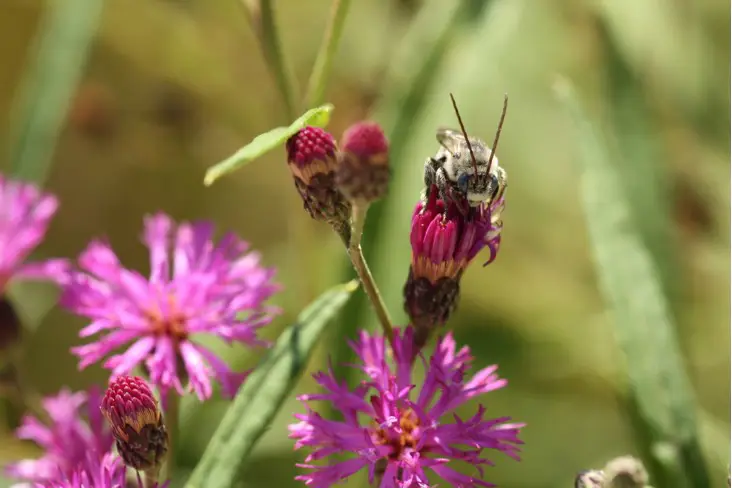Departmental Support Boosts NSF Awards for Graduate Students

An increasing number of Vols in the Department of Ecology and Evolutionary Biology (EEB) earned awards through the National Science Foundation (NSF) Graduate Research Fellowship Program (GRFP). It marks a successful effort from the department to support researchers at the graduate level.
EEB winners are Sam Wilhelm, Kate Loveday, and Keelee Pullum. Other 2024 fellowship winners across the UT College of Arts and Sciences include Gage Coon from the Department of Microbiology and Charles Bell from the Department of Physics and Astronomy.
“These are some of the most distinguished fellowships that a grad student can get,” said Stephanie Kivlin, associate professor and director of graduate studies in EEB. “It shows that our students are performing at a high level, really going above and beyond.”
The GRFP helps ensure the quality, vitality, and diversity of the US scientific and engineering workforce by supporting outstanding graduate students who are pursuing full-time, research-based graduate degrees in science, technology, engineering, and mathematics (STEM) or in STEM education.
The three new awardees this year make a total of six EEB students with GRFP fellowships, representing about 10% of the department’s current graduate students. Kivlin is excited that their student-support initiatives have garnered this high number of fellowships.
“It’s nice to see the professional development training that we’re doing in the department is really paying off for our students,” she said. “We started a mock panel to review proposals before they are submitted in 2019. Since then, we’ve had so many more proposals funded. We also have writing and presentation classes, so our students are trained in multiple skills for the workforce.”
The GRFP provides three years of support over a five-year fellowship period for the graduate education of students who have demonstrated their potential for significant research achievements.
“If you have your own funding as a graduate student, you can pursue whatever question you want,” said Kivlin. “Often those are independent of the principal investigators of the graduate labs. It springboards students’ careers then because everyone can see that they have already started doing independent research.”
Wilhelm’s winning proposal looked at how flowering plant communities in the southeast respond and rebound to annual wildfires, and how that in turn might mediate the associated bee community in the area.
“I used metacommunity theory to hypothesize that different fire regimes may support a mosaic of different plant-bee ‘interaction metacommunities’ at the landscape scale,” said Wilhelm. “I proposed to test this by comparing plant-bee interaction dynamics across multiple annual fire treatments that differ in seasonality. I am thrilled to receive this award that will allow me to continue studying native bees and conservation of the ecosystems that sustain them.”
Loveday’s proposal looked into the mechanisms that allow invasive plant species to outcompete native herbaceous understories of forests.
“The GRFP is great because the NSF funds the potential of the applicant to do research effectively, not the specific projects you write up, which reinforces my confidence in doing research,” said Loveday. “The grant gives me the opportunity to pursue research questions I am passionate to answer.”
Pullum’s project aims to test how sickness behavior and parental care are traded off in the wild and how both parent and offspring fitness are affected.
“I plan to carry out these experiments for snow buntings, a species of arctic-breeding songbirds that migrate yearly to Utkiagvik, Alaska,” said Pullum. “The funding from the NSF GRFP will allow me to focus on research and community outreach during my graduate studies.”
EEB students Dusty Prater and Trina Chou earned honorable mentions for their proposals.
In microbiology, Gage Coon’s successful GRFP project aims to develop a microbial cycle that would turn atmospheric CO2 into calcium carbonate (rocks). Charles Bell, GRFP winner in physics, proposed novel ways to detect and investigate dark matter.